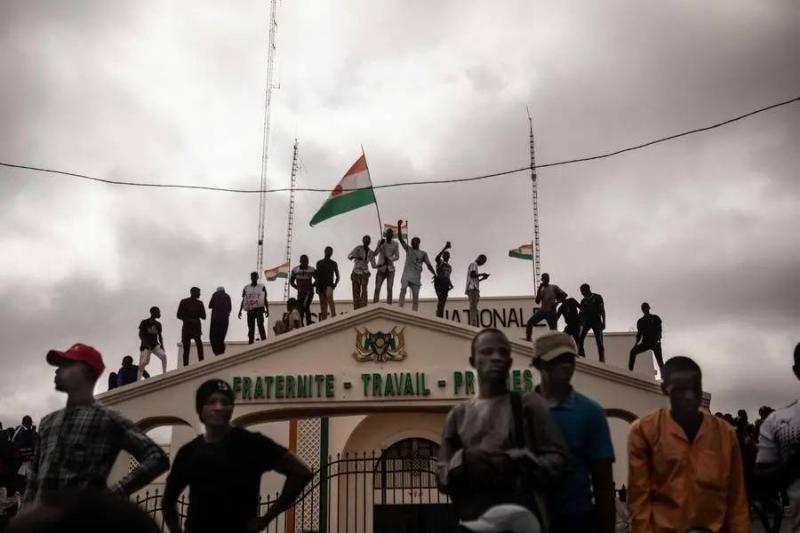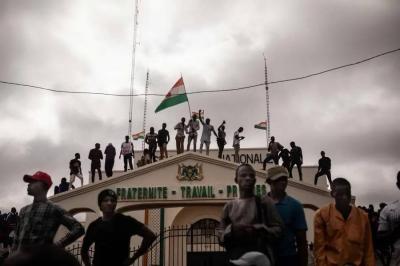The military council in Niger appointed a new government last night to enforce its policies ahead of a summit taking place today, Thursday, for regional leaders demanding an end to the power coup. The meeting of West African heads of state in Nigeria later today aims to agree on a plan regarding Niger, where the coup leaders refuse to back down despite the bloc threatening to use force to restore democracy.
Since the coup on July 26, which shocked the region, the military council has rejected diplomatic initiatives and ignored the deadline that expired on August 6, set by the Economic Community of West African States (ECOWAS), to restore ousted President Mohamed Bazoum to power. On state television, Mahamane Riffai Lawali, referred to as the "Secretary General of the Government," read 21 names without providing details about any further plans.
Three coup leaders were appointed ministers of defense, interior, and sports in the new government. Former Finance Minister Ali Mahaman Lamine Zeine, who was announced as prime minister on Monday, was appointed as finance minister in the new government. The previous Niger government included 43 ministers, none of whom were military personnel.
UN Secretary-General Antonio Guterres expressed concern for Bazoum and his family after his party reported that they are being held at the presidential residence without electricity or running water and have spent days without fresh food. A spokesperson for the organization stated yesterday, Wednesday: "The Secretary-General calls again for his immediate and unconditional release and for him to be reinstated as head of state."
The meeting in the Nigerian capital Abuja could be crucial in the crisis. Group leaders are expected to agree on next steps, which may include military intervention, considered a last resort, according to an ECOWAS official. Any escalation could further destabilize the Sahel region of West Africa, one of the world's poorest areas, where a long-standing insurgency by extremist groups has led to the displacement of millions and a worsening hunger crisis.
Disagreements over domestic policies led to the coup, which later attracted international involvement, as ECOWAS, the UN, and Western countries pressure the military council to step back, while the military governments in neighboring Mali and Burkina Faso have pledged to defend it.




